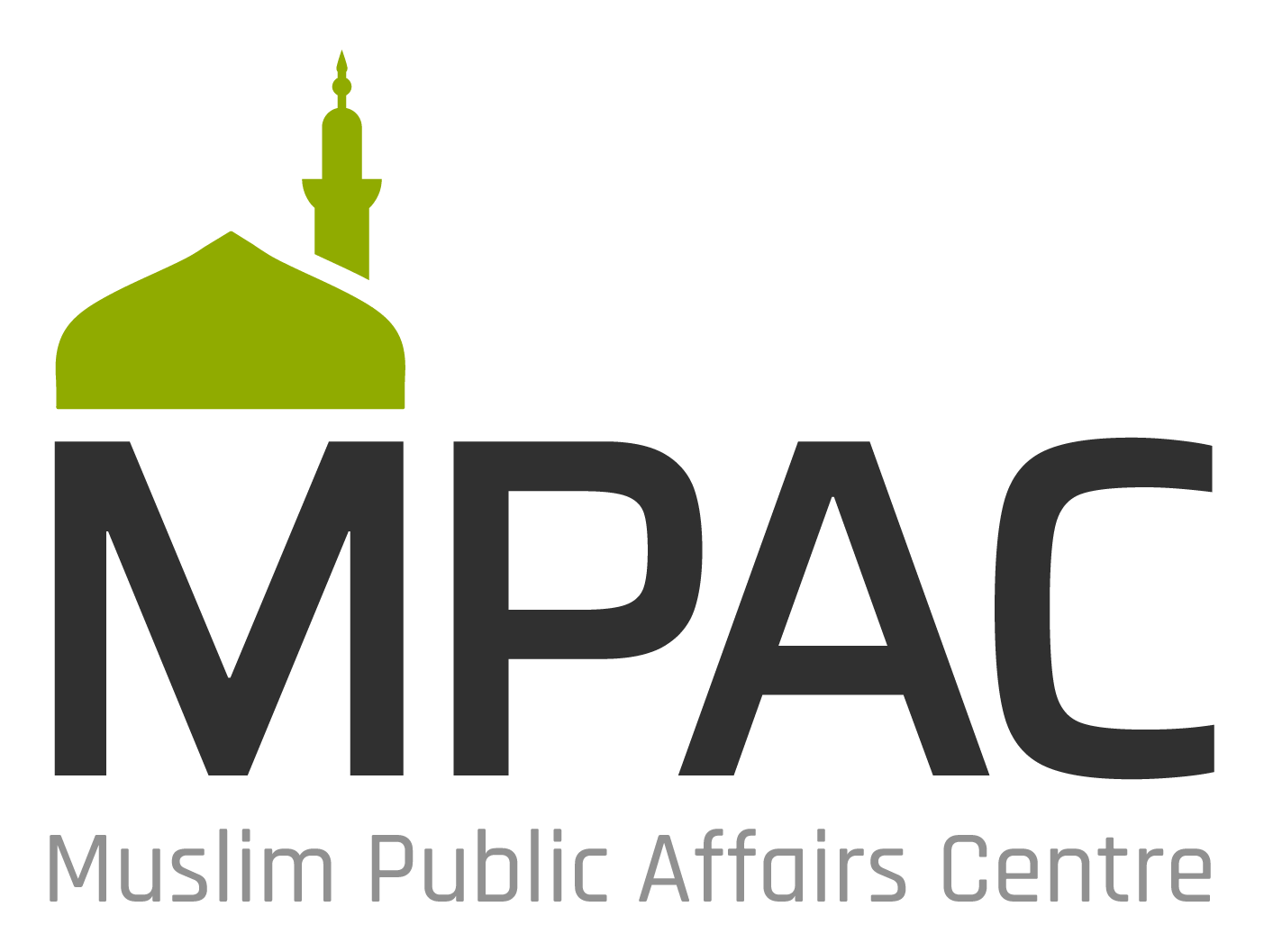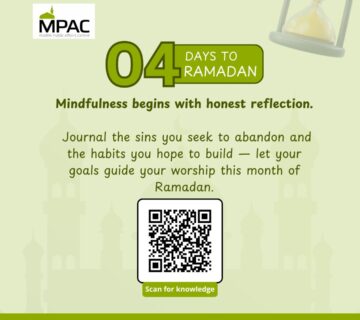Chairmen,
Joint Committees on Justice and Judiciary,
House of Representatives,
National Assembly Complex, Abuja
Dear Sir/Ma,
MEMORANDUM ON THE HIJAB CONTROVERSY BETWEEN THE NIGERIAN LAW SCHOOL AND Ms AMASA FIRDAUS (A LAW SCHOOL GRADUANT) HR. 195/2017
To the JOINT COMMITTEE ON JUSTICE AND JUDICIARY (Committee) of the House of Representatives.
Introduction
1. This submission is from MUSLIM PUBLIC AFFAIRS CENTRE, NIGERIA (MPAC) on behalf of the Nigerian Muslim community in respect to the case of Ms Amasa Firdaus who was denied access to the International Conference Centre, Abuja venue of the call to bar ceremony of the Law School on Wednesday December 13, 2017.
2. We wish to submit this memorandum before the Committee to state our position on the issue and to represent our interest to speak on our submission at the Public Hearing slated for Tuesday, 6th February, 2018.
Contact Information:
Telephone : 08076049545
Email: kamor.disu@mpac-ng.org , admin@mpac-ng.org
3. MPAC is an incorporated public service agency working for Muslim Defense, Muslim Empowerment and for promoting individual liberties, religious, civil and political rights of Muslims. MPAC is equally devoted to promoting the integration of Islam into the Nigerian pluralism, for a positive and constructive relationship between Nigerian Muslims and other elements in the society; building the Nigerian Muslim constituency to become an influential component in the Nigerian politics, at all levels of policy-making arena; and making Islamic ethical values available to the Nigerian political process. As an experienced and independent voice within the Nigerian Muslim community working for the good of the society, MPAC operates on the core Islamic values of justice, mercy, human dignity, freedom, sanctity of human life and equality for all.
General/Summary
4. MPAC supports the use of hijab in all public places (including all public schools) for the following reasons:
RELIGIOUS
The hijab refers to the head covering worn by Muslim women in accordance with their religious beliefs. It is generally worn to completely conceal a woman’s hair, neck and ears, whilst leaving the face exposed. The obligation to wear a hijab in Islam is derived from the Qur’an. The Qur’an states:
“And say to the believing women that they should lower their gaze and guard their modesty, that they should not display their beauty and ornaments except that what must ordinarily appear thereof; that they should draw their veils over their bosoms and that they should not display their beauty except to their husbands, their fathers, their husbands’ fathers, their sons, their husbands’ sons, their brothers or their brothers’ sons, or their sisters’ sons, or their women or the slaves whom their right hands possess, or male servants free of physical needs, or small children who have no sense of the shame of sex and that they should not stroke their feet in order to draw attention to their hidden ornaments.” Surah 24, Verse 31, Holy Qur’an.
“O Prophet! Tell thy wives and daughters, and the believing women, that they should cast their outer garments over their persons (when abroad). That is most convenient, that they should be known, (As such) and not molested.” Surah 33, Verse 59, Holy Qur’an.
Like prayer, fasting and pilgrimage, certain religious celebrations and dietary, clothing requirements are obligatory practices of the Muslim faith. For better or worse, all recognized madhabs (schools of law) in Islam consider covering the hair to be obligatory by ijma’, or consensus, regardless of geographic context.
Although Islamic religious practices have similarities to elements of other religions, the details of procedure that define what is proper religious practice may differ. In the case of hijab, there are prescribed forms which make it easy to embrace a wide range of forms of hijab in different circumstances and avoid the mistakes of ostracizing or excluding people based on their religious dress code.
The hijab is already integrated into the professional dress code in most countries of the world, and is already part of the official uniform of the Army and Police force in great democracies like United States, United Kingdom and Sweden. The hijab has been around for more than 1400 years, it enriches our multiculturalism; it does not threaten secularism and diversity. These are some of the cardinal benefits of true democracy that we all believed we struggled to enthrone.
SOCIAL
It is crucial that citizens of varying religious background should feel included, not excluded or discriminated at in the society. The only social impact of the discriminatory policy of the Law School is segregation and exclusion. There can possibly not be a worse way to institutionalize and validate “otherism” than the action of a body that is supposed to train and certify people to operate and uphold the constition and the law. The lesson from the mistreatment and discrimination is to depict certain section of the population as “others”, and those “others” must be excluded. Our schools, including the Law School, must be a citadel of both excellence and teaching of tolerance, national cohesion and peaceful co-existence.
LEGAL, CONSTITUTIONAL, INTERNATIONAL RECOGNITION AND PROTECTION
MPAC’s position is that the action of the Law School against Ms Amasa, and similar attacks on hijab have legal implications on two grounds;
1. Attack on freedon of religion and freedom of expression of religion
2. Violation of human rights
We all are citizens of a free country, and we have given ourselves a Constitution which, inter alia, guarantees freedoms of worship, religion, association and expression. We particularly refer to Section 38 (1) of the 1999 Nigerian Constitution (as ammeded) which guarantees the right to practice religion as follows: “Every person shall be entitled to freedom of thought, conscience and religion, including freedom to change his religion or belief, AND FREEDOM (EITHER ALONE OR IN COMMUNITY WITH OTHERS, AND IN PUBLIC OR IN PRIVATE) TO MANIFEST and propagate his religion or belief in worship, teaching, practice and observance.
Section 42 (1) clearly spells it out that no citizen shall be subjected either expressly by, or in the practical application of, any law in force in Nigeria or any executive or administrative action of the government, to any form of DISABILITIES or RESTRICTIONS by reason of belonging to a particular community, ethnic group, place of origin, sex.
The discriminatory action of the Law School is simply to treat Firdous’ wish to enjoy the Constitutional guarantee of freedom of (expression of) religion as illegitimate and worthy of scorn.
International human rights law obliges state authorities and non state bodies to avoid coercion in matters of religious freedom. It is clear that the Law School did not take this obligation into account when devising the school dress codes.
Besides, the Human Right Watch, a nonprofit, nongovernmental human rights organization with offices around the globe, including Nigeria, made the following declarations in respect to the violation of human right as a result of the infamous hijab ban by the French government in 2014:
“Under international law, states can only limit religious practices when there is a compelling public safety reason, when the manifestation of religious beliefs would impinge on the rights of others, or when it serves a legitimate educational function (such as prohibiting practices that preclude student-teacher interaction). Muslim headscarves, Sikh turbans, Jewish skullcaps and large Christian crosses—which are among the visible religious symbols that would be prohibited—do not pose a threat to public health, order or morals; they have no effect on the fundamental rights and freedoms of other students; and they do not undermine a school’s educational function.”
“However, protecting the right of all students to religious freedom does not undermine secularism in schools. On the contrary, it demonstrates respect for religious diversity, a position fully consistent with maintaining the strict separation of public institutions from any particular religious message.”
and
“The impact of a ban on visible religious symbols, even though phrased in neutral terms, will fall disproportionately on Muslim girls, and thus violate antidiscrimination provisions of international human rights law as well as the right to equal educational opportunity. Indeed, the promotion of understanding and tolerance for such differences in values is a key aspect of enforcement of the right to education.”
(France: Headscarf Ban Violates Religious Freedom, 2014.)
Under the European Convention on Human Rights, everyone has a human right to manifest their religion or belief. That means every citizen has inalienable right to wear particular articles of clothing or symbols to show that he/she has a particular religion or belief at workplace and schools, even if other people of of the same religion don’t.
Court Judgments
The female Muslim students of Kwara State College of Education, Ilorin, Kwara State, won a landmark victory on Monday, 08 May, 2006 in their case against the board of the college which had approved a dress code for students banning the niqob (a form of hijab). The High Court in Kwara State, presided over by Justice Durosinlorun Kawu, ruled in favour of the students and declared that the content of the Article “J” of the school’s new dress code “is unlawful, unfair, discriminatory, unconstitutional, null and void, and of no effect whatsoever”;
In another landmark judgment on Thursday, November 18th 2008, Judge Olubunmi Oyewole of the Lagos State High Court ruled that ban on hijab was a breach of articles 38 and 42 of the Nigerian Constitution.
Not upholding the rule of law in this case will be perceived, and rightly so, as a definite act of the committee to force Ms Amasa, her parents and indeed the entire Muslim community to mobilize to secure justice in the court of law. Our first recourse is to seek protection in the work of this joint Committee.
5. We urge the joint Committee to uphold Ms Amasa’s rights to express her religion in a friendly atmosphere and one that is free from any forms of abuse, intimidation, harassment or discrimination. All members of this Committee took an oath to support and defend the Constitution of Nigeria and bear true allegiance to the same. Fulfilling that oath requires each and every member to speak courageously and act firmly on the side of the Constitution. The findings and conclusions of the Committee will allow us to send a clear message that the conduct of those who set upon poor students or those upon whom they exercise authority was wrong and unlawful. It is up to this joint Committee and the House as a whole to reaffirm the rule of law and, in this particular case, restore hope for a tolerant and diverse society where promotion of religious freedom and rights are enshrined in official policies.
6. Recommendation
Further, we expect that as a follow up to the conclusions of the hearing, the Committee will;
1. Issuance of a statement of support to Ms Amasa Firdaus for her positive actions in repelling acts of discrimination directed against her on the basis of her religion and the violation of her constitutional rights.
2. Call for the reinstatement of Ms Amasa Firdaus and demand for full redress of injustice done against her.
3. Enactment of appropriate law for the Promotion of Equality and Prevention of Unfair Discrimination.
4. Criminalisation of any and all acts of discrimination against anyone on the basis of religion, irrespective of religious and ethnic background.
Assurances of our best regards.
Yours truly,
Contacts:
Disu Kamor
Executive Chairman
Muslim Public Affairs Centre, MPAC
e-mail: kamor.disu@mpac-ng.org
websites: www.mpac-ng.org, www.mpac-events.org







No comment